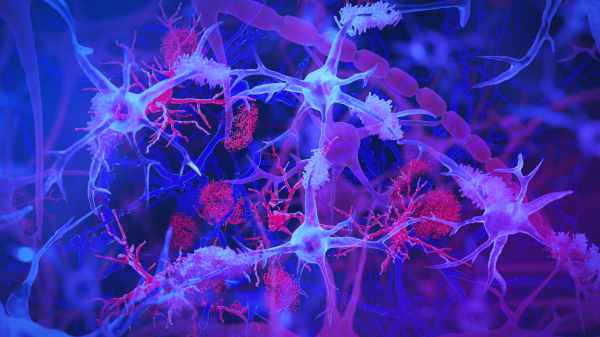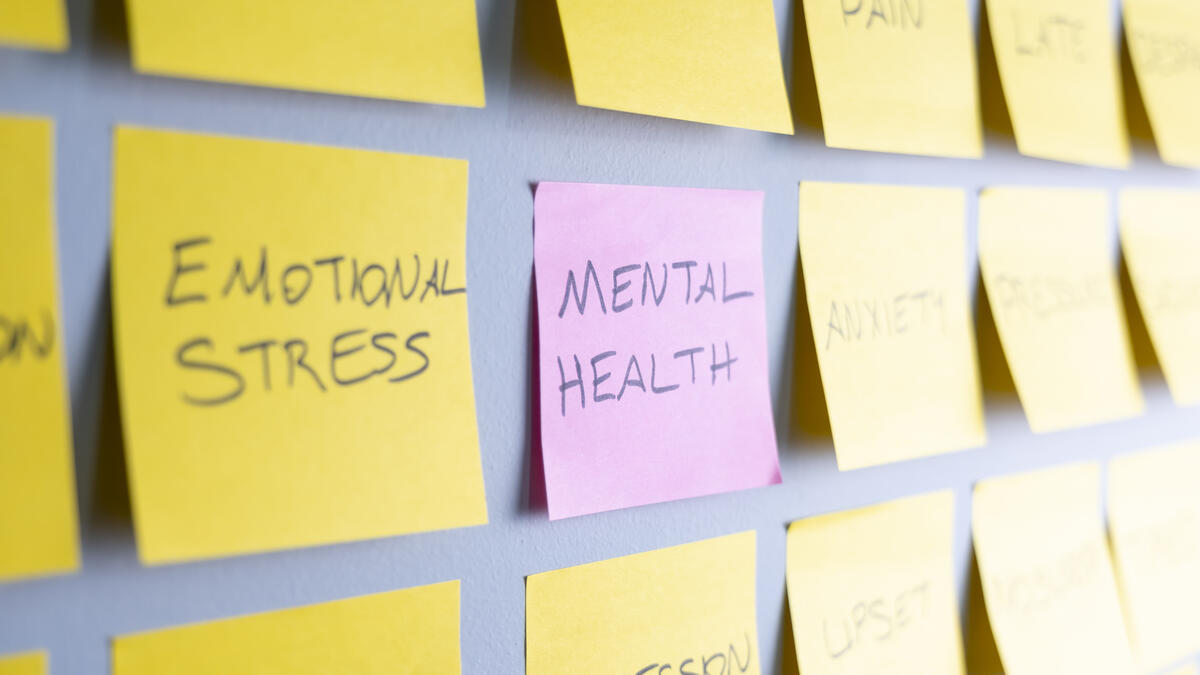At its most basic level, mental health is related to how we think and feel.
It is the intensity or disproportionate reaction of those thoughts and feelings that can determine our level of mental health.
According to the Centers for Disease Control and Prevention, mental health includes our emotional, psychological and social well-being, and affects how we think, feel and act. It also helps determine how we handle stress, relate to others and make healthy choices.
“Our mental health becomes the filter through which we experience the world,” said Aaron Krasnow, associate vice president of health, counseling and wellness at Arizona State University. “It’s the filter for our relationships with others and determines our views of ourselves.”
This May is Mental Health Awareness Month, which was established in 1949. The mission of the month is to increase awareness of the importance of mental health and wellness in our lives, and to educate the public about the reality of living with a mental health condition.
According to the World Health Organization, mental health conditions involve significant disturbances in thinking, emotional regulation or behavior. The most common conditions in the U.S. are anxiety and depression, which make up nearly 30% of all mental illness diagnoses.
Mental health diagnosis can also include illnesses such as bipolar disorder, post-traumatic stress disorder, eating disorders, disruptive behavior, dissocial and neurodevelopmental disorders.
According to the Centers for Disease Control and Prevention, factors that can contribute to mental illness include adverse childhood experiences — such as trauma or a history of abuse — ongoing (chronic) medical conditions — such as a traumatic brain injury — biological factors or chemical imbalances in the brain.
Stigmas and misconceptions
But throughout history, mental illnesses has often been misunderstood.
According to the National Alliance on Mental Illness, the pervasive stigma lies in the misconception that mental health conditions are a personal and moral failing — rather than illnesses requiring treatment, like any other health issue.
Stigmas can be evident in the language often associated with mental illness: crazy, psycho, loony bin.
These attitudes can compound a person’s suffering and inner struggles, leading to shame and isolation.
“Those who live with and treat mental illness know that stigma is a major contributing factor,” said Alexandra Brewis, a Regents and President's Professor in the School of Human Evolution and Social Change. “The threat or experiences of being judged means people may be less willing to seek help and are more likely to discontinue treatment.
"The discriminations triggered by stigmas also make life more difficult in many other arenas, like being denied employment or safe and affordable housing. These then feed back into worse mental health. Without stigma, mental health is much easier to achieve and sustain.”
Stigma sticks like super glue. Once it is attached to a disease, it is incredibly difficult to remove because it requires substantial cultural changes.
Alexandra BrewisRegents and President's Professor
A global issue
Nearly 58 million adults in the U.S. experienced a mental illness in 2021. According to the National Institute of Mental Health, that represents 1 in 5 adults.
And COVID-19 only exacerbated the problem.
The World Health Organization reported that the COVID-19 pandemic triggered a 25% increase in the prevalence of anxiety and depression worldwide. Megan Jehn says the pandemic was particularly hard on children.
“Epidemiologic data suggests that mental health issues are rising among kids, most likely being the result of a perfect storm of increasing challenges before COVID-19 struck and living through a highly disruptive pandemic,” said Jehn, an epidemiologist and professor of global health in the School of Human Evolution and Social Change.
A landmark study published during the pandemic found that 25.2% of youth experienced depression and 20.5% experienced anxiety during the pandemic worldwide, which is double that of pre-pandemic estimates, Jehn said.
The American Psychological Association described the pandemic as a "collective trauma" in their study “Stress in America 2023: A Nation Recovering from Collective Trauma.”
The trauma was connected to the death of more than 1 million Americans and the cultural changes the pandemic ushered in.
“It is actually a group-level vulnerability that may have exacerbated the day-to-day stressors,” said Leah Doane, a professor in ASU’s Department of Psychology.
Stopping the stigma
Despite this, stigmas may remain because society tends to separate themselves from people with mental health issues — which compounds the loneliness for those affected.
“Part of the problem in our culture is we live in an extremely trauma- and grief-avoidance world…,” said Joanne Cacciatore, a professor at ASU’s School of Social Work whose research focuses on traumatic grief.
Cacciatore explains that people have survived many individual and collective traumas throughout history, including the Holocaust.
“They survived, but social support was essential. If we don’t have that, then suffering is even more debilitating. Loneliness and isolation are added to the traumatic grief experience,” said Cacciatore, who believes that the material covered in ASU’s trauma and bereavement graduate certificate is indispensable for mental health professionals.
Last year, the U.S. Surgeon General Vivek Murthy put out a call to action over public health crisis of loneliness, isolation and lack of connection in our country. Even before the COVID-19 pandemic, nearly half of U.S. adults reported experiencing living with a significant level of loneliness.
“We need to remember that we all belong to one another,” said Nika Gueci, executive director of ASU’s Center for Mindfulness, Compassion and Resilience. “We need to remember that we cannot live without one another right? So when we see someone in distress, then it’s really up to us to help.”
Gueci is working with the Arizona Department of Health Services on a statewide strategy to reduce loneliness and social isolation.
“It doesn’t always have to be up to them to pull themselves up. It's up to us to be there for them so that they can better be able to pull themselves up.”
The hope behind Mental Health Awareness Month is to uncover the stigmas and understand the struggles associated with those affected. And perhaps then, communities can become a source of comfort and healing for people.
Krasnow believes that as a society, the stigma around mental health seems to be subsiding — especially in younger generations.
“They are more likely to share their mental health journey and more likely to be accepting of each other,” he said. “And there is evidence of that.”
But society has a long way to go before stereotypes can be completely set aside.
“Stigma sticks like super glue,” Brewis said. “Once it is attached to a disease, it is incredibly difficult to remove because it requires substantial cultural changes.”
Brewis is focused on finding solutions to complex global health challenges. Her current work is based on field research around several matters, including stigma.
“Developing empathy is key,” Brewis said. “But that is a hard thing to teach and nurture. Interestingly, celebrities sharing their mental health struggles can move the needle and has proven to be one mechanism that can change public opinion. …
"When we start to connect a condition to someone we admire and look up to, it can foster empathy.”
More Health and medicine

ASU professor named Rural Health Fellow
If you live in a major city, chances are you don’t spend much time thinking about what happens in smaller towns and rural areas. But Aaron Guest, an assistant professor at Arizona State…

The rise of NoLo: Many young people opting to reduce alcohol consumption
This month, the U.S. surgeon general released a new advisory on the link between alcohol and cancer risk.The advisory includes a series of recommendations to increase awareness of the link, including…

The surprising role of gut infection in Alzheimer’s disease
Arizona State University and Banner Alzheimer’s Institute researchers, along with their collaborators, have discovered a surprising link between a chronic gut infection caused by a common virus and…
